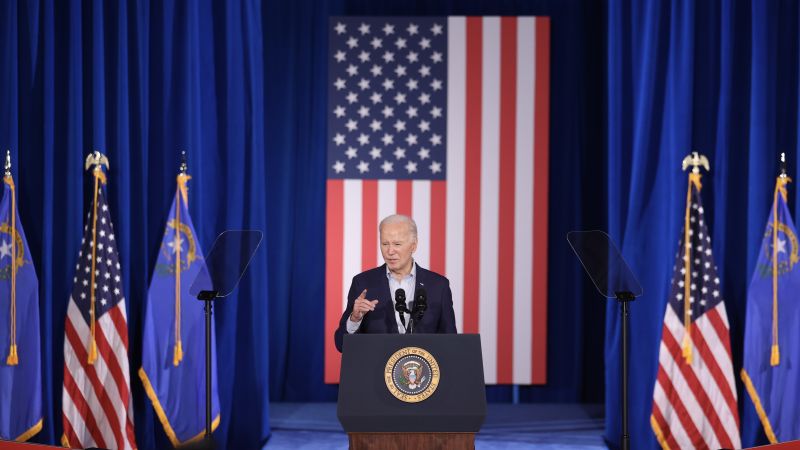White House advisers are closely monitoring consumer sentiment as an economic indicator to gauge the direction of the economy amidst persistent inflation, high interest rates, and stagnant wage gains. Consumer sentiment, which measures how average Americans feel about their financial situation and purchasing power, has increased by more than 30% since late last year, reaching 79.4 in March. While there was a slight dip in April due to higher-than-expected inflation, the Biden administration remains cautiously optimistic about the overall trend indicating potential economic relief.
Consumer sentiment data is compiled by researchers from the University of Michigan by surveying 600 American households about their current financial situation and future financial outlook. This makes consumer sentiment a forward-looking indicator compared to data on economic growth or job creation that reflect past data. Despite potential bumps in the road, the trend in consumer sentiment has been positive, giving hope for economic improvement in the future.
Critics argue that the increase in consumer sentiment may not be enough to boost President Biden’s political fortunes, especially since sentiment hit a historic low of 50.0 during the peak of inflation in June 2022. Former White House chief of staff Ron Klain believes that Biden should focus more on household financial issues that are driving voters’ priorities rather than local infrastructure projects. Economists, including former President Obama’s chief economist Jason Furman, continue to express concerns about high consumer prices and the impact on workers’ wages.
Despite recent improvements in wage growth outpacing inflation, the lasting impact of previous declines in real wages poses challenges for the economy. Voter discontent about the economy remains widespread, with a majority of respondents in a late March poll viewing the economy as “poor” or “not so good.” However, there is optimism about household incomes rising, potentially leading to improved economic indicators in the future.
While voter perception of the economy may be difficult to change quickly, the Biden administration plans to continue executing its agenda with the hope that rising household incomes will positively impact economic indicators. Critics like Tomas Philipson, a former economist in the Trump administration, remain skeptical about the administration’s ability to reverse negative voter perceptions about the economy. Ultimately, the path to economic recovery and restoring confidence in the economy may be challenging but possible with sustained efforts and improvements in key economic indicators.


